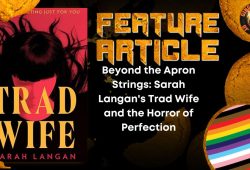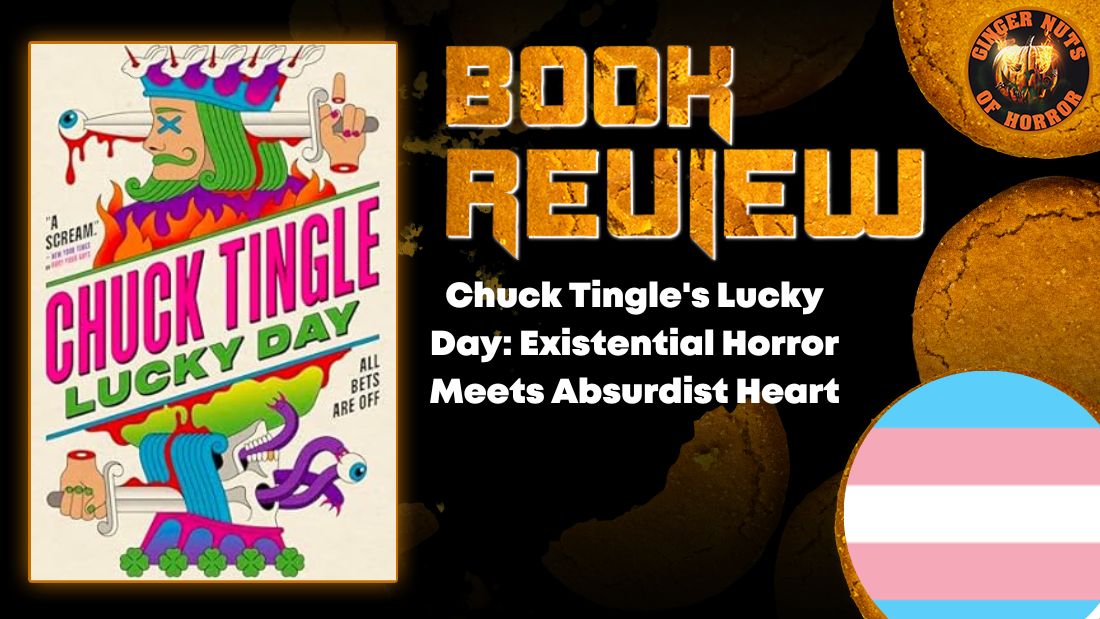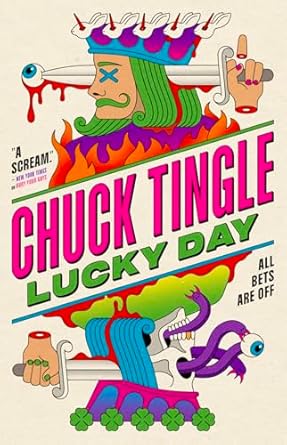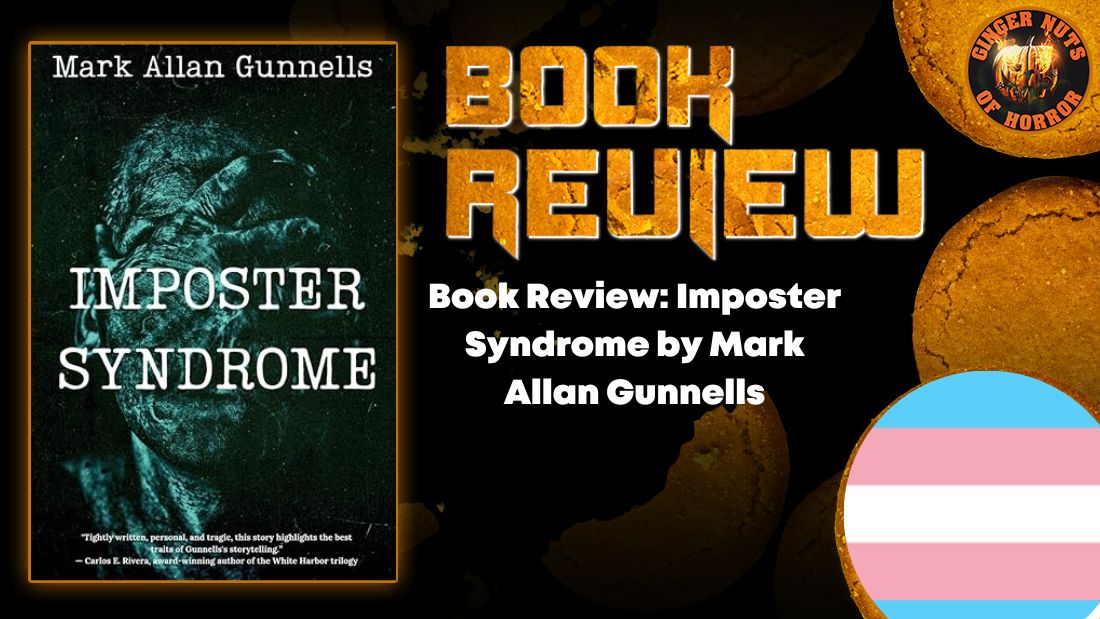Chuck Tingle’s Lucky Day: Existential Horror Meets Absurdist Heart
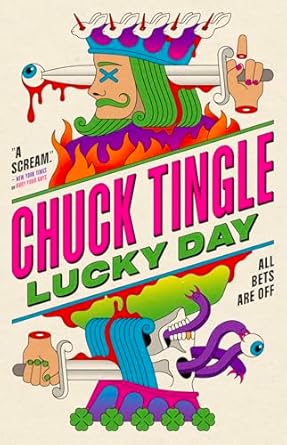
Chuck Tingle, once celebrated for viral erotic titles like Space Raptor Butt Invasion, has cemented his status as a master of contemporary horror with his latest novel, Lucky Day. Released on August 12, 2025, by Tor Nightfire (US) and Titan Book (UK), this genre-defying work blends visceral terror, statistical philosophy, and queer resilience into a narrative that is as intellectually provocative as it is unsettling.
Four years after the Low-Probability Event (LPE), a global catastrophe killing eight million people through absurdly improbable means (e.g., chimp attacks, raining fish, exploding manholes), statistics professor Vera Norrie remains emotionally shattered. Once driven by the order of numbers, Vera now languishes in nihilistic despair, believing the LPE proved the “God of Order is dead”. Her inertia is disrupted when Special Agent Jonah Layne, a flamboyant investigator from the authoritarian Low-Probability Event Commission (LPEC), recruits her to probe a Las Vegas casino whose statistically impossible luck might be linked to the LPE. As Vera and Layne descend into a conspiracy involving historical inertia and cosmic balance, they race to prevent another cataclysm.
Lucky Day has a great cast of characters, Vera Norrie: A bisexual statistics professor whose expertise collapses alongside her worldview after the LPE. Tingle sensitively explores her depression, survivor’s guilt, and battle against bi-erasure. Her character journey from existential paralysis to defiant agency, anchors the novel’s emotional core.
Then we have Agent Jonah Layne: A government operative whose zest for life masks complex trauma. His relentless optimism (“seize every moment!”) and quirky habits (e.g., compulsive eating) provide comic relief, yet his allegiance to the unchecked LPEC adds moral ambiguity.
And finally, we have Thematic Antagonists: The true villains are abstract forces, statistical chaos, institutional power, and the void of “nothingness” that Vera fears. The casino symbolises a Faustian bargain: concentrated luck enabled by global suffering. I loved these characters, as for me it felt like the greatest episode of Sapphire and Steel.
Tingle cleverly uses the LPE as a lens to dissect profound philosophical questions such as Existential Dread: Vera’s crisis mirrors post-pandemic disillusionment. The LPE’s aftermath sees society revert to normalcy, ignoring deeper systemic failures—a sharp allegory for COVID-19’s societal impact.
The Tyranny of Luck: The novel posits luck as a finite resource. When the casino hoards “good fortune,” it triggers catastrophic balance restoring events. This framework challenges readers to reconsider everyday blessings
Queer Resilience: Vera’s bisexuality becomes a metaphor for resisting erasure. Tingle validates her identity against dismissal from both heterosexual and queer communities, tying self-affirmation to survival. True to Tingle’s mantra (“Love is real”), the novel argues that meaning emerges not from cosmic order, but from human connection and defiance against the voi
Tingle weaponises the collision of the ludicrous and the horrific to create a uniquely disorienting narrative voice. The novel’s structure mirrors Vera’s shattered psyche, fragmented, unpredictable, and haunted by the spectre of meaningless chaos.
The Low-Probability Event (LPE) isn’t just a backdrop; it’s the novel’s tonal manifesto. Tingle renders global catastrophe through deliberately ridiculous, yet viscerally terrifying, vignettes such as
Chimpanzees with Typewriters: A literalization of the infinite monkey theorem becomes a massacre. Tingle describes academics “bludgeoned by antique Underwoods” as primates “hammering out gibberish sonnets in blood.” The absurdity underscores the LPE’s core horror: meaninglessness. Death arrives not from grand villains, but from cosmic indifference wearing a clown mask.
Raining Fish: Initially played for dark humour (“grouper to the groin”), it escalates into ecological dread. Sardines clog ventilation systems, swordfish impale pedestrians, and rotting mackerel trigger biohazard panics. The disaster evolves from a Farrelly Brothers gag into a David Cronenberg nightmare, symbolising nature’s laws gone rancid. And other “Final Destination Gone crazy” Moments such as Exploding manholes vomiting pennies, sentient topiaries strangling golfers, a wave pool revolt, drowning tourists in chlorinated frenzy..
Tingle’s narrative architecture reinforces this dissonance. There are tonal changes throughout the novel. A chapter might open with Vera’s bleak monologue on entropy (“All order is temporary scaffolding over the void”), then cut to Agent Layne cheerfully devouring a 72-ounce steak while discussing “sentient tumbleweeds.” The contrast highlights humanity’s coping mechanisms against insanity.
The casino’s “luck engine” is powered by a literal wheel of fortune manned by a nihilistic AI quoting Pascal. Its design, part carnival attraction, part Lovecraftian altar, embodies the novel’s thesis: luck is chaos wearing a sequined dress.
Vera’s clinical, statistical narration (“Probability of death by falling aquatic fauna: 0.000003%”) clashes violently with surreal horrors. Her deadpan delivery of absurdity, “Tuesday’s death toll included seventeen people crushed by rogue parade floats”, becomes a shield against madness.
This absurdist framework isn’t random; it’s engineered to Dismantle Comforting Delusions. By making disasters ridiculous, Tingle denies readers the refuge of “rational evil.” There’s no villain to blame, only cold, chaotic math. While amplifying Existential Dread. A raining-fish death feels more violating than a tsunami. It mocks the human need for narrative coherence. In a world where chimpanzees wield typewriters as weapons, Vera’s choice to care becomes radical rebellion.
The result is a novel that is a high-wire act of intellect, viscera, and intentional ridiculousness that dares you to laugh before you scream.
Tingle transcends horror conventions to ask: How do we find meaning in chaos? By marrying statistical theory with visceral stakes, he crafts a testament to resilience. Vera’s journey, from believing “nothing matters” to fighting for a world where “love is real”, resonates beyond the page, offering a lifeline to those grappling with modern despair. In an era of pandemics and polarisation, Tingle reminds us that absurdity isn’t an end, it’s an invitation to create purpose.
Lucky Day solidifies Tingle as horror’s most unpredictable vital voice. It’s a wild, wise, and weirdly hopeful ride that balances brainy speculation with heart-pounding terror.
Lucky Day by Chuck Tingle
A statistics professor tries to a survive a series of gruesome and impossibly unlikely disasters linked to a supernaturally lucky Vegas casino, while dealing with her own erasure as a bisexual, in this chilling and quick-witted horror novel.
Vera, a bisexual statistics professor, is one of the survivors of a global disaster of a new kind – the Low Probability Event. What should have been a simple family lunch turns into an absurd catastrophe raining fish, parade balloons, exploding manholes and brutally violent animal attacks.
Washed up the aftermath, it’s only when the handsome, but problematic, government agent Layne knocks on her door that she is offered a glimpse of meaning to life. Layne is investigating the Low Probability Event, and believes the deadly absurd events may be linked to an improbably lucky casino.
As they hit the road to try and make sense of the meaningless chaos of life, only one thing is clear – what happens in Vegas isn’t staying there…
Horror Book Reviews on Ginger Nuts of Horror
For fans of horror literature, The Ginger Nuts of Horror website is an essential destination that should not be overlooked. This platform offers a dedicated horror book review section that caters specifically to the needs of horror enthusiasts. With its unique blend of insightful critiques, expert recommendations, and a vibrant community, the site serves as a treasure trove for anyone seeking their next spine-chilling read.
One of the standout features of the horror book review section is its diversity. Readers can discover everything from classic horror novels to contemporary indie gems, ensuring that there’s something for everyone. Each review is thoughtfully penned, providing not just a summary but also a deep dive into the themes, writing style, and overall atmosphere of the works. This allows readers to gauge whether a particular book aligns with their preferences.
For those passionate about horror literature, checking out this section is a must!






